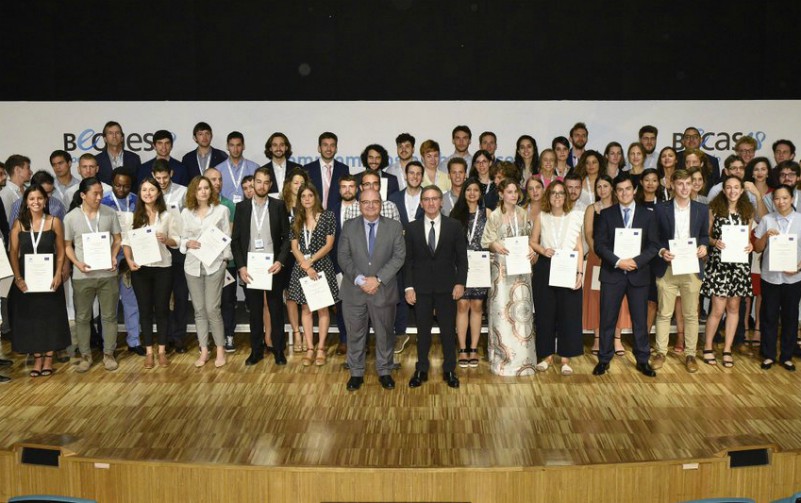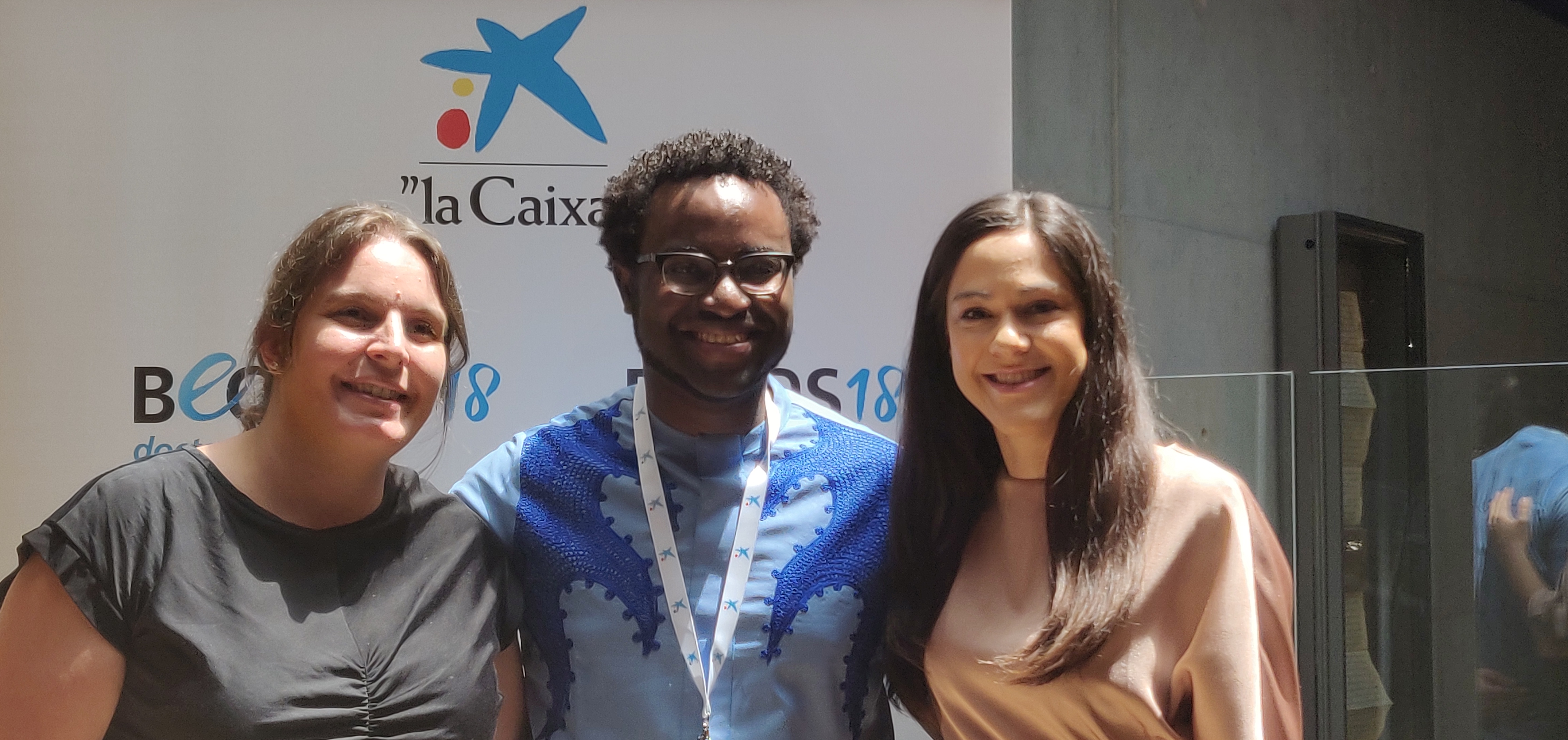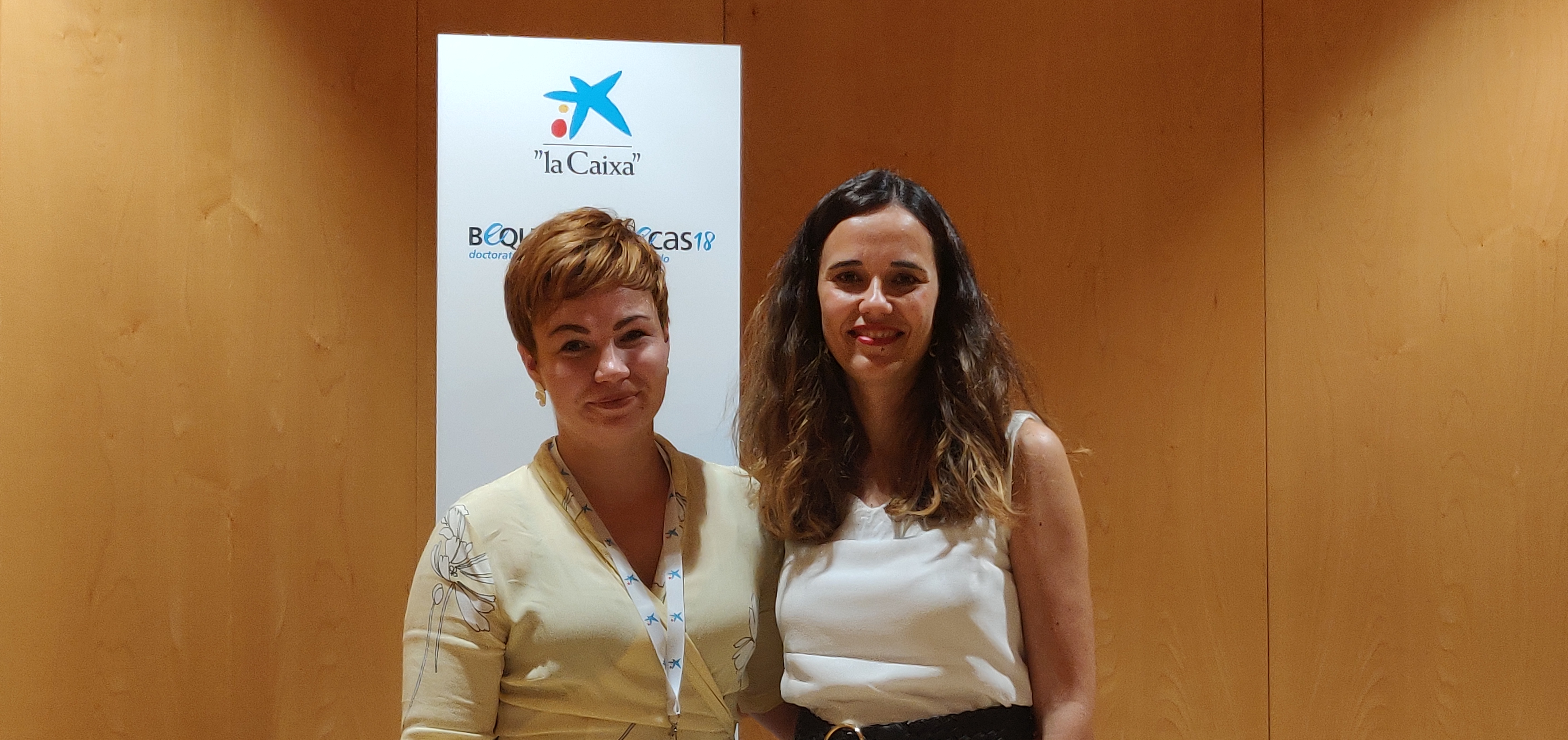Two Can Ruti PhD students at the INPhNIT award ceremony

Two students have been awarded INPhINIT grants by "la Caixa" Foundation to complete their PhDs on the Can Ruti Campus. Emma Koehorst, has been working on Myotonic Dystrophy in the Neuromuscular and Neuropaediatric Research Group led by Gisela Nogales at the IGTP since last September. Ifeanyi Ezeonwumelu has started working at the IrsiCaixa on novel therapeutic strategies for HIV with Dr Ester Ballana Guix in the HIV Pathogenesis Group, led by Dr José A Esté.
Emma told us that she was very proud to have been awarded an INPhINIT grant and delighted to be at the IGTP working on her project. 488 international candidates went through three tough rounds of selection, culminating with a difficult interview to select the best candidates who will be funded for the next three years to complete their PhD theses.
Through the INPhINIT Programme the "la Caixa" Foundation funds 57 international doctoral students to work in Spain and provides a further 20 places for national candidates. With an average cost of 120,000 euros and a total cost of 9,240,000 euros is a very valuable source of funding for PhD Students.
"Funds for PhD students have decreased dramatically in the last ten years," Gisela Nogales told us. "Predoctoral researchers are essential members of research groups and we are thrilled that Emma won a place to be with us," she added.
The Programme is cofinanced by the European Commission and promotes international training in research laboratories and companies. We asked Emma, who is from the Netherlands, how she got to the IGTP.
"It's quite a long story, with quite a few strange coincidences," she said laughing. "Let's just say that it was key that Gisela Nogales worked as a postdoctoral researcher in Maastricht University and has maintained links there since then."
Both scientists agree that being part of international networks is essential and that predoctoral and postdoctoral positions in different countries are a very important part of young scientists establishing their own contacts.


